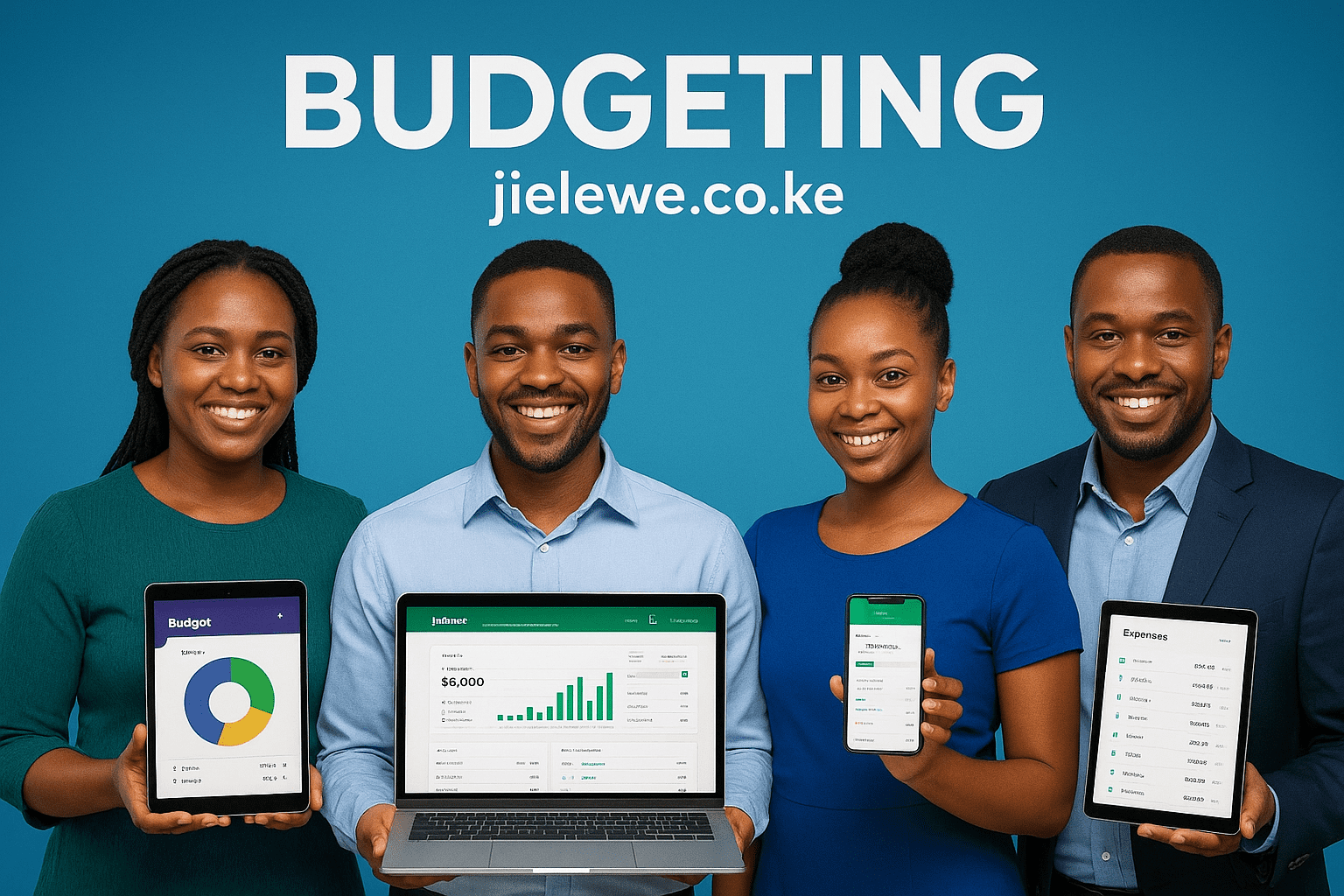Budgeting isn’t about restriction; it’s about clarity. Yet many Kenyans still feel like money “just disappears.” If that sounds familiar, you’re not alone. Below are the most common budgeting mistakes in Kenya—and how to fix each one today with practical steps and the help of Jielewe.
1) Budgeting from memory (instead of data)
The mistake: Guessing expenses and “estimating” M-Pesa, cash, and bank spend.
Fix: Track everything for 30 days.
Do it with Jielewe: Auto-log M-Pesa transactions, add cash spends in seconds, and view category totals so your budget is based on real numbers—not vibes.
2) Ignoring small daily buys (they compound fast)
Airtime, data bundles, snacks, and rides feel tiny… until month-end.
Fix: Create a “small spends” category with a firm weekly cap.
In Jielewe: Set weekly sub-budgets (e.g., Airtime/Data, Snacks, Transport) and receive nudges when you’re close to the limit.
3) Treating HELB/salary like a windfall
Money in, mood up—then two weeks later, you’re stuck.
Fix: Use the 50/30/20 split (needs/wants/saving & debt) as a baseline.
In Jielewe: Allocate your income to categories on payday so every shilling has a job before you start spending.
4) Not planning for irregular expenses
School fees, textbooks, holidays, insurance, county rates—these shock your budget.
Fix: Convert them into monthly “sinking funds.”
In Jielewe: Create Goals (e.g., “Term 2 Fees – KSh 30,000”) and auto-save towards them monthly.
5) Using Fuliza & digital loans as a budget “buffer”
Short-term convenience = long-term leaks (fees + interest).
Fix: Build an emergency fund (start with KSh 5,000–10,000).
In Jielewe: Track debt paydowns and set an Emergency Fund goal with progress visuals.
6) Budgeting without your household/partner
Two (or more) unaligned spenders = chaos.
Fix: Hold a 15-minute weekly money check-in.
In Jielewe: Share summary reports so everyone sees where the money went and what’s left.
7) Forgetting cash and chama contributions
Cash spend and chama payouts often sit outside the “main” budget.
Fix: Record cash like it’s digital; treat chama inflows as income with a plan.
In Jielewe: Add cash transactions and tag chama inflows to goals (e.g., “New phone,” “Investment contribution”).
8) Over-categorising (or under-categorising) expenses
Too many categories = confusion. Too few = no insight.
Fix: Start simple (Rent, Food, Transport, Bills, Airtime/Data, Personal, Giving, Savings/Debt).
In Jielewe: Use default categories, then refine after a month of data.
9) Not reconciling M-Pesa, Paybill, and Till fees
Fees quietly bite into your budget.
Fix: Track fees as their own category and reduce avoidable charges.
In Jielewe: Fees are visible, searchable, and categorizable—so you can choose cheaper payment options next time.
10) Setting a budget—and never looking at it again
A budget you don’t review is just a wish list.
Fix: Weekly 10-minute review: planned vs. actual, then adjust.
In Jielewe: View trend charts and category overspends; tweak next week’s limits on the spot.
Kenya-Specific Tips That Actually Help
- Tokenise utilities: Budget tokens for KPLC in advance; top up on cheaper days if applicable.
- Matatu & ride-hailing: Create a weekly transport cap; when it’s done, switch to cheaper routes.
- Data discipline: Pre-buy weekly bundles that fit your use.
- Side-hustle income: Budget it too—allocate profits to savings/investments before lifestyle creep kicks in.
- Giving & harambee: Add a monthly “Giving” line so generosity is planned, not painful.
Why Jielewe Is the Right Tool for Kenyans
- Built for Kenyan flows: Track M-Pesa, cash, and bank in one place.
- Crystal-clear insights: See where money goes—by day, by category, and by goal.
- Goal tracking: School fees, emergency fund, laptop, car deposit—set it, fund it, hit it.
- Simple, fast, local: Designed for students, employees, and hustlers who need clarity, not complexity.
👉 Get started in minutes: Jielewe
Authoritative Resource
Want to deepen your financial literacy? Review consumer-protection insights and money-management basics from the Central Bank of Kenya—a trusted, authoritative source Kenyans and search engines respect:
- Central Bank of Kenya – Consumer Protection (helpful for responsible borrowing and financial safety).
Additionally, if you’re looking to transform your money mindset, programs like Centonomy offer excellent personal finance and wealth creation training. Many Kenyans take Centonomy classes to gain long-term skills—and pairing those lessons with Jielewe helps you apply what you learn daily.
👉 While Centonomy teaches you the why and how of wealth creation, Jielewe shows you exactly where your money is going so you can budget smarter, avoid waste, and stay consistent.
Quick Budget Setup (10 Minutes)
- List income sources (salary, HELB, side-hustles).
- Enter last month’s spends (M-Pesa + rough cash).
- Create 7–10 core categories.
- Set weekly caps for variable categories (Food, Airtime/Data, Transport).
- Add 1–2 goals (Emergency Fund + one priority).
- Enable weekly reminders in Jielewe and review every Sunday.
FAQs
Q1: How do I budget on a small salary or HELB?
Start with the essentials, cap wants tightly, and auto-save a small fixed amount (even KSh 200/week) toward an emergency fund.
Q2: What if my income is irregular?
Base your budget on your lowest predictable month; treat extra income as bonus for goals and debt.
Q3: Do I really need to track cash?
Yes. Cash leaks are the biggest blind spot. Jielewe makes cash entries fast—do it at point of spend.
Q4: How do I stop living on Fuliza?
Set a mini emergency fund goal, trim non-essentials for 30 days, and redirect those shillings to clear the overdraft first.
Strong Call to Action
If you can track it, you can control it. Start budgeting the Kenyan way—with a tool built for your reality.
👉 sign up now at jielewe.co.ke
